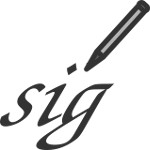Christopher K. Veatch has joined Perkins Coie’s White Collar & Investigations practice group as a partner in the Chicago office. Veatch joins the firm from the U.S. Department of Justice (DOJ), where he was most recently Chief of the National Security & Cybercrimes Section at the U.S. Attorney’s Office for the Northern District of Illinois.
As Section Chief, Veatch led complex investigations of cyber, national security, fraud and financial crimes
Veatch joins the firm shortly after Perkins Coie’s recent hiring of two others from government positions: Adam Schuman in New York (former Special Counsel for Public Integrity in the New York State Governor’s Office) and Kevin Feldis in Anchorage (former First Assistant United States Attorney in Alaska).
“Perkins Coie is an industry leader with a deep national bench of white collar attorneys who provide strategic counsel to our clients in highly consequential matters,” said Markus Funk, Chair of Perkins Coie’s White Collar & Investigations practice. “Chris’s distinguished career with the DOJ was notable for his exemplary track record in investigating and prosecuting national security and cybercrime enforcement matters. His confidence and superb attention to detail are an asset in advising clients on the complex, sensitive and challenging problems they face in these highly regulated sectors, and the respect he enjoys among his peers is exceptional.”
Before and during law school, Veatch spent five years as a police officer. He earned his law degree (magna cum laude and Order of the Coif) from the Indiana University Mauer School of Law and joined the Securities and Exchange Commission (SEC) as a Staff Attorney in the Enforcement Division, where he investigated violations of the federal securities laws, including insider trading, market manipulation and offering and financial fraud. In 2005, he joined the U.S. Attorney’s Office as an Assistant U.S. Attorney, and within five years was promoted to be a Deputy Chief of the General Crimes Section. Less than a year later, he was chosen to be the Deputy Chief of the newly-created National Security Section (as it was then known), and for the past five and a half years, Chris served as the Section’s Chief.
In a release, the firm said:
During his time as a federal prosecutor, Veatch took a series of cases to trial, and successfully argued his victories and other matters on appeal to the U.S. Court of Appeals for the Seventh Circuit. Among the complex and sensitive matters he has investigated and prosecuted are those involving cybercrime, securities, bank and accounting fraud, international bribery and money laundering schemes, copyright infringement, theft of trade secrets and economic espionage, and export control and U.S. sanctions programs, including the International Traffic in Arms Regulations, Arms Export Control Act, International Emergency Economic Powers Act, Export Administration Regulations, Iranian Transactions and Sanctions Regulations, Iranian Transactions Regulations, and other Office of Foreign Assets Control sanctions programs, as well as other national security matters, including those involving international and domestic terrorism.
“Chris is a perfect fit for the Chicago Office. He is a proven first-chair trial lawyer in complex cases and is well-known and well-liked by many of our current partners already,” said Chris Wilson, Managing Partner of Perkins Coie’s Chicago office. “Chris adds even more depth to our national White Collar and Investigations practice, and he will be an important part of growing our Chicago office going forward. Most importantly, Chris provides a vital resource to our clients seeking guidance in the increasing regulatory environment surrounding cyber and securities enforcement. I’m delighted to welcome him to the firm.”
 Tax lawyers at Jackson Walker LLP have reduced the details of the new U.S. tax law to a one-page interactive graphic to help businesses, individuals and their accountants sort out the new law’s complexities.
Tax lawyers at Jackson Walker LLP have reduced the details of the new U.S. tax law to a one-page interactive graphic to help businesses, individuals and their accountants sort out the new law’s complexities.





